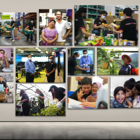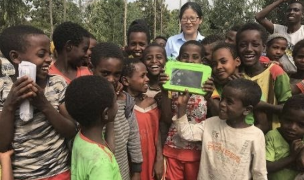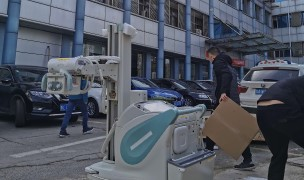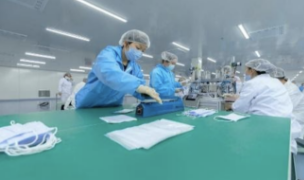Many migrant workers come to Singapore to earn a living, so they can support their families back home. Here’s how DBS enabled them to continue doing so, while under quarantine.
We are speaking to Mr Rana Shohel, 31, over a video call. It’s been nearly three months since he’s left his dormitory. Together with some 25,000 migrant workers, Mr Shohel has been confined to Sungei Tengah Lodge since April, when the Choa Chu Kang dormitory was gazetted as an isolation area after 29 cases of Covid-19 were uncovered there.
This meant that the workers were no longer allowed to leave the dorm to buy food or other necessities. For some, the brakes were suddenly slammed on their usual run to places such as Mustafa Centre to remit money home.
Fortunately – amid concerns over the Covid-19 outbreak – sending money home was at least one thing Mr Shohel did not have to worry about.
Mr Shohel has a POSB account, and had been using the bank’s jolly app – developed in 2017 specially for migrant workers – to transmit money home to his family in Bangladesh from his mobile phone. Six members of his family there, including a two-year-old daughter, are dependent on him.
“I send home between SGD 500 and SGD 1,000 each time,” he says.
Mr Shohel came to work in Singapore in 2009, straight after finishing secondary school. There wasn’t much choice. His father died two years earlier and he had to support his mother and two teenage brothers.
Had he stayed home, he would be earning today only about SGD 300 a month and not the SGD 1,200 he gets as a construction supervisor in Singapore.
Mr Shohel says he last visited his family in Bangladesh seven months ago, and is waiting to see them again once travel restrictions are lifted.
He changes the view on his mobile phone and shows us his room. Pointing to his fellow workers in the room, he says they are now all using POSB jolly.
Since Covid-19 struck and migrant workers were confined to their dorms, usage of POSB jolly for remittance, among other services, have spiked, says POSB. Prior to the outbreak, the bank was already banking more than 500,000 of the 750,000 migrant workers in Singapore.
There was a further spike in account openings after Singapore’s Manpower Ministry issued a circular for employers with foreign workers residing in dorms to declare by 15 April 2020 that they would pay salaries electronically by the next salary payment due date.
POSB accordingly processed some 27,000 migrant worker account openings within four days, and some 41,000 migrant worker account openings for the month of April. Typically, the bank sets up 11,000 to 13,000 accounts a month for migrant workers.
“We had a working group set up to closely monitor and handle the process, adding in resources and headcount where needed. From issuing 3,000 PIN codes and 6,000 ATM cards per day, we ramped up capabilities to 6,000 PIN codes and 10,000 ATM cards,” says Alvin Neo, Head of Consumer Deposits, DBS Bank.
“We had to step in and help our migrant workers”
Over at Chew’s Agriculture, a leading egg producer in Singapore, the firm took a proactive step to help their migrant workers send money home during this pandemic.
Like other dormitory workers, these workers too were confined to their lodgings to help curb the spread of Covid-19.
We had to step in and help our migrant workers,” says Ms Chew Chern Peng, Admin & HR Executive at Chew’s Agriculture. “Initially I tried using various apps to transfer money for them. I have never sent cash overseas, so it was very tedious because the apps had to be constantly topped up with money.”
Ms Chew, who had been using POSB digibank, then realised her workers could also use digibank to remit money, without any levy and administrative fees. She encouraged them to open accounts with POSB and then download the app.
“When registering new migrant workers, we can apply a POSB account for them with just one click,” says Ms Chew. “After our workers applied for an account, the bank sends their debit cards and pin numbers to us. Previously, we had to make trips to the bank to get the card and pin. This is a lot more convenient.”
Now, her workers not only can remit money to their families back home, but are also able to shop online for what they need. Adds Ms Chew, “When they were confined in the farms during Covid-19, we would go out and get most of what they needed, so now it’s more convenient for everyone.”





